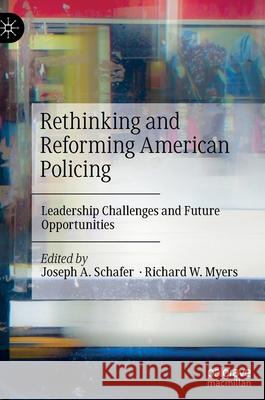Rethinking and Reforming American Policing: Leadership Challenges and Future Opportunities » książka
topmenu
Rethinking and Reforming American Policing: Leadership Challenges and Future Opportunities
ISBN-13: 9783030888954 / Angielski / Twarda / 2021 / 428 str.
Rethinking and Reforming American Policing: Leadership Challenges and Future Opportunities
ISBN-13: 9783030888954 / Angielski / Twarda / 2021 / 428 str.
cena 563,56
(netto: 536,72 VAT: 5%)
Najniższa cena z 30 dni: 539,74
(netto: 536,72 VAT: 5%)
Najniższa cena z 30 dni: 539,74
Termin realizacji zamówienia:
ok. 16-18 dni roboczych.
ok. 16-18 dni roboczych.
Darmowa dostawa!
Kategorie:
Kategorie BISAC:
Wydawca:
Springer Nature Switzerland AG
Język:
Angielski
ISBN-13:
9783030888954
Rok wydania:
2021
Ilość stron:
428
Waga:
0.70 kg
Wymiary:
21.01 x 14.81 x 2.69
Oprawa:
Twarda
Wolumenów:
01
Dodatkowe informacje:
Wydanie ilustrowane











